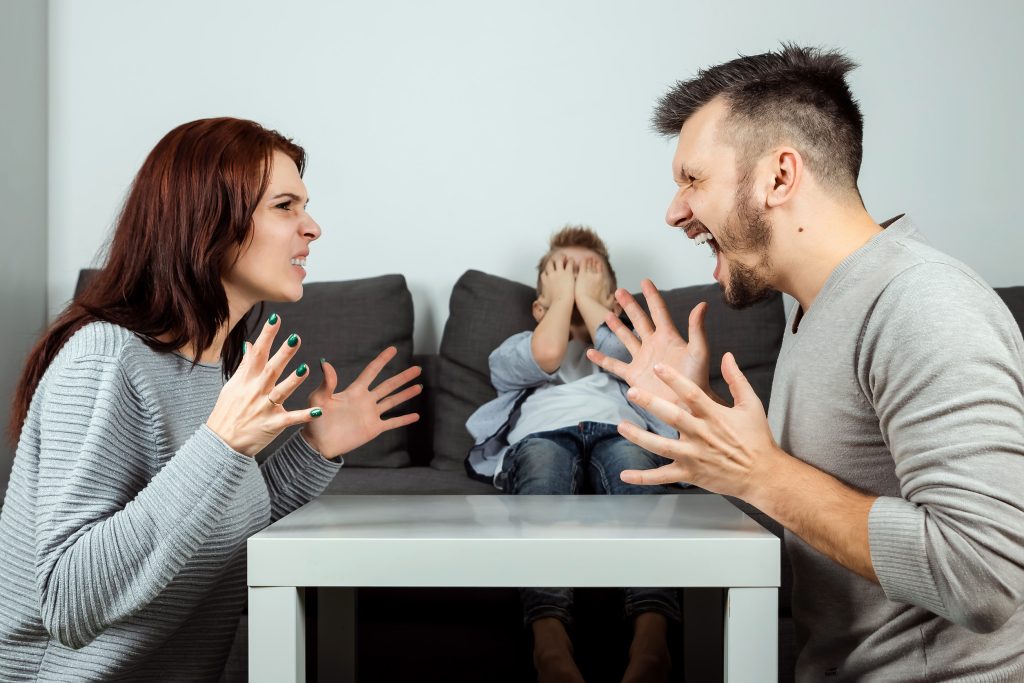
As parents, we all want what’s best for our children—but sometimes, the way we express concern or try to teach a lesson can backfire. Even well-meaning words or actions can leave kids feeling confused, anxious, or scared. Kids see the world very differently than adults do, and what seems like no big deal to you might feel overwhelming to them. Recognizing the common parenting mistakes that can accidentally scare kids is a key part of building trust, emotional security, and healthy communication. The good news? Once you know what to watch out for, small changes can make a big difference.
1. Using Scary Consequences to Gain Compliance
Threatening extreme punishments—like “I’ll leave you here!” or “The police will come get you if you don’t stop”—might seem like quick ways to stop bad behavior, but they can leave lasting fear. These types of warnings often go over a child’s head in logic but hit hard in emotion. Young children may believe your words literally, imagining worst-case scenarios that leave them anxious long after the moment has passed. This is one of the most common parenting mistakes because it often stems from panic or desperation. Instead of threats, aim for calm consequences that make sense and feel safe.
2. Yelling Without Explaining
It’s totally normal to lose your cool now and then—parenting is hard. But when yelling happens regularly or without explanation, it can leave kids feeling scared, confused, or even ashamed. Children, especially young ones, often don’t understand the “why” behind your frustration. Without a follow-up conversation to explain your emotions and what happened, they’re left to fill in the blanks—and that often leads to fear. One of the most common parenting mistakes is assuming kids understand your feelings just because they see them.
3. Talking About Adult Problems in Front of Them
Kids are excellent eavesdroppers—and not very good at context. Hearing arguments about money, work stress, or relationship issues can create anxiety they’re not equipped to process. They may take your stress personally or worry about problems they don’t understand. This is one of the common parenting mistakes that happens during car rides, phone calls, or kitchen conversations when we forget little ears are listening. Save adult conversations for when your child is truly out of earshot, and if they overhear, take time to clear up what they heard.
4. Using “Stranger Danger” Too Literally
Yes, teaching kids to be cautious is important—but going overboard with scary warnings about kidnappers or bad people can actually make them feel unsafe in everyday life. If you say things like “Never trust anyone” or “Everyone you don’t know is dangerous,” children may become overly fearful of public spaces or struggle with social situations. One of the more common parenting mistakes is confusing safety education with fear-based messaging. Instead, teach them specific skills like staying close, recognizing trusted adults, and what to do if they feel uncomfortable.
5. Overreacting to Injuries or Illness
It’s instinct to panic when your child gets hurt—but your reaction teaches them how serious the situation is. If you scream, gasp dramatically, or rush in with panic, your child is likely to feel frightened even if the injury is minor. While it’s important to take care of them, keeping your tone calm and your face reassuring can prevent extra fear. This is one of the most common parenting mistakes during everyday scrapes and sniffles. A composed response helps your child feel safe, even when they’re hurt.
6. Overloading with Information They’re Not Ready For
Whether it’s a scary news event or a heavy family topic, giving too much information at once can overwhelm young minds. Kids need age-appropriate answers to big questions, not a full rundown of every worst-case scenario. If they ask about something difficult, start small and offer gentle explanations, checking in to see what they already know or feel. Overexposure to frightening information is one of the more subtle common parenting mistakes—and it often comes from a desire to be honest. Honesty is important, but timing and tone matter just as much.
7. Dismissing Their Fears
When a child says they’re scared of the dark, thunder, or monsters under the bed, it’s tempting to laugh it off or say, “That’s silly.” But what feels silly to you is real and powerful to them. Telling them they’re wrong to be scared doesn’t make the fear go away—it just makes them feel alone in it. One of the most common parenting mistakes is trying to eliminate fear by downplaying it. Instead, validate their feelings and offer tools to help them feel safe and brave.
Small Shifts, Big Impact
Being a parent means learning as you go—and that includes learning which habits might accidentally harm more than help. The good news is, once you’re aware of the common parenting mistakes that can accidentally scare kids, you’re better equipped to avoid them. A little more empathy, a little more listening, and a little more patience go a long way. Kids don’t need perfect parents—they need present, responsive ones who make them feel safe even in hard moments.
Have you caught yourself making one of these parenting mistakes? What helped you shift your approach? Share your thoughts in the comments!
Read More:
The Discipline Mistakes That Actually Make Kids Behave Worse
5 Innocent Mistakes That Turn Into Lifelong Bad Habits
The post Common Parenting Mistakes That Can Accidentally Scare Kids appeared first on Kids Ain't Cheap.







